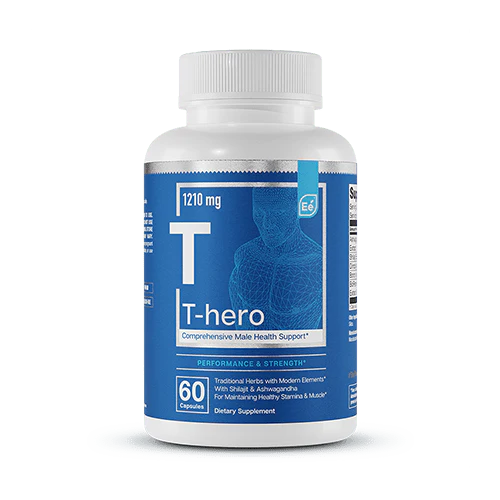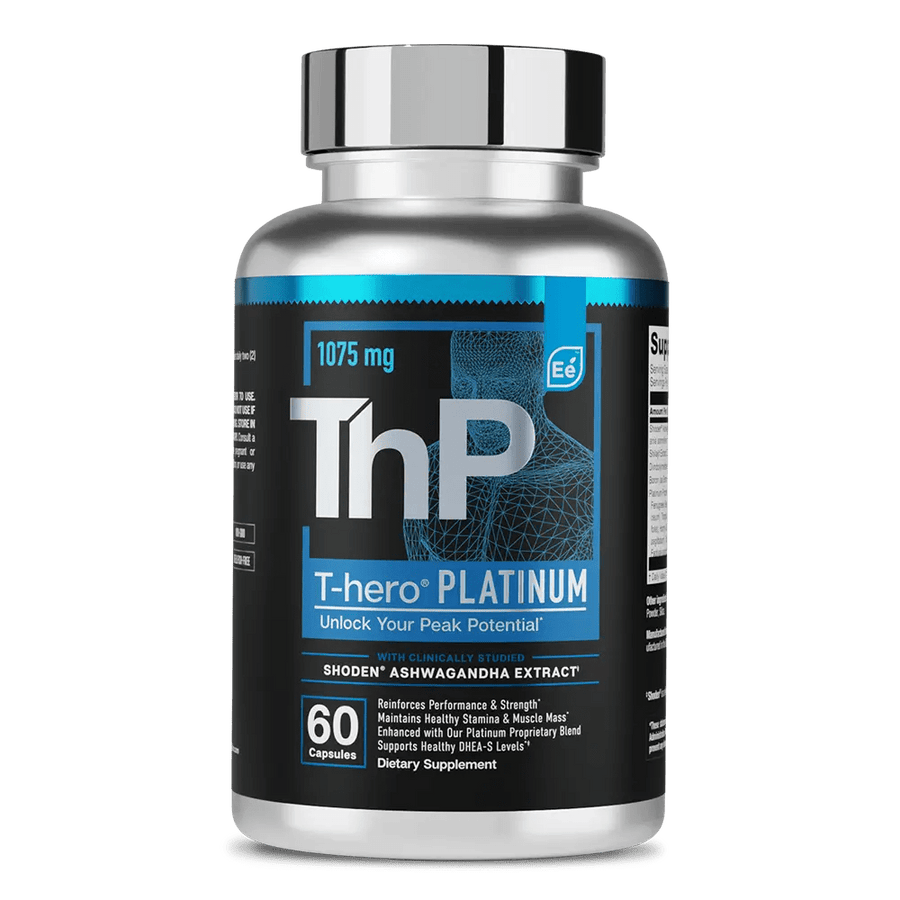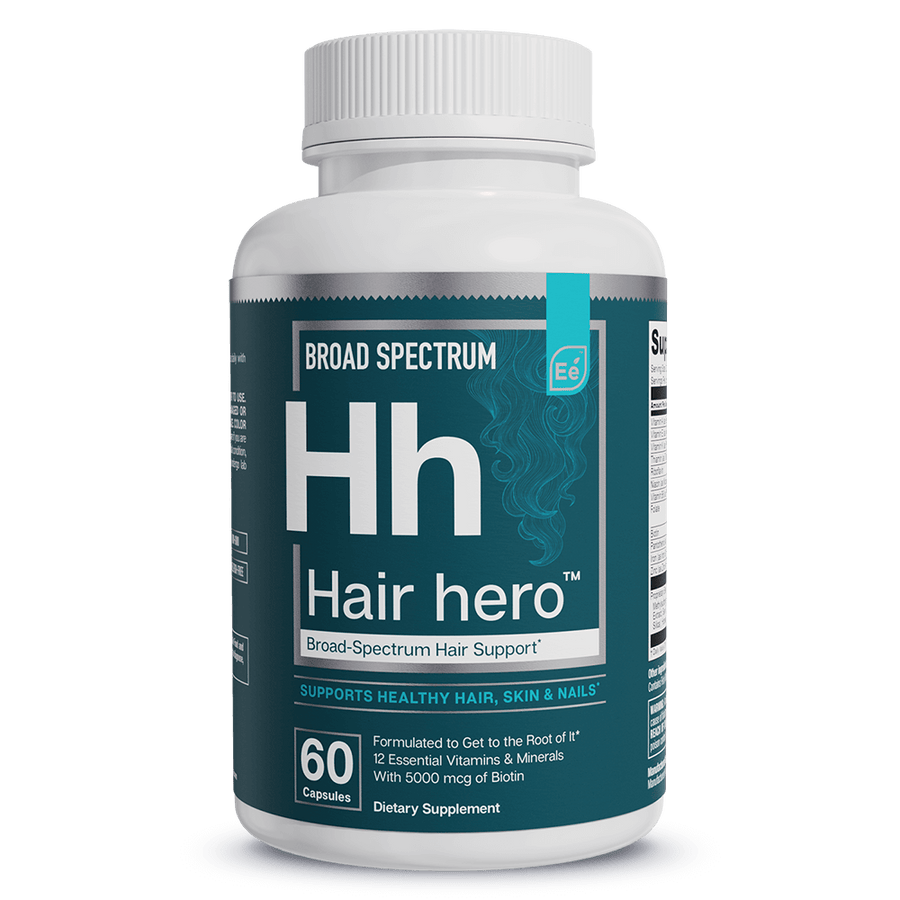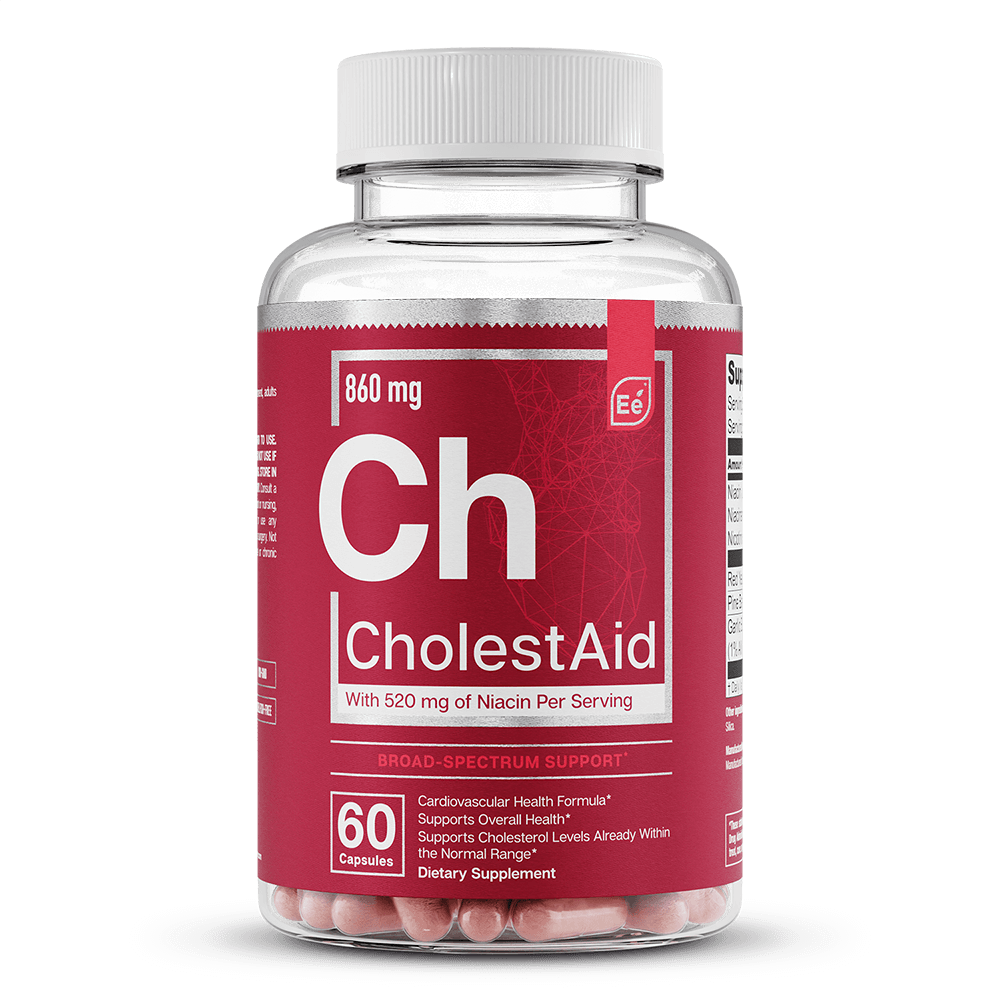Beyond Muscle: Creatine’s Surprising Benefits for Women
When you think of creatine, what image comes to mind? If it’s a muscular man who could easily pass as the next Mr. Olympia, you’re not alone. In fact, a quick Google search for creatine reveals page after page of super-ripped men pumping iron at the gym. But creatine offers more than a toned physique — and men aren't the only ones who can benefit from taking it: women can, too.
Creatine gained popularity in the 90s, especially among professional athletes and bodybuilders looking for safe and effective ways to get stronger, faster. Since then, creatine research has evolved, and it's become a highly researched supplement.
While experts agree that virtually everyone can experience a ton of great benefits from taking creatine, its reputation as a “dudes-only” muscle builder has been hard to break. And that's a real shame, not only because its reputation as a male bulking supplement has alienated a lot of women, but it has also deprived them of the wide range of benefits creatine offers, including energy, cognitive function, mood, and yes, athletic performance.
With all the misinformation about creatine for women, we’ve created this handy guide with everything you need to know about this powerful supplement. So save it, bookmark it, and share it with a friend because we are separating fact from fiction and explaining the ins and outs of creatine, how it works, and why women are making creatine a key addition to their everyday routine.

What Is Creatine?
Creatine is an energy-producing compound created by your body and found in certain foods like meat and fish. It’s stored in your muscles, encouraging the rapid regeneration of adenosine triphosphate (ATP), your cell’s main energy source. It’s then released during explosive, high-energy exercises like weight lifting, sprinting, and High-Intensity Interval Training (HIIT).
Creatine supplementation can have some transformative benefits — especially for women. Only a small amount occurs naturally or in our diet, and women tend to consume less creatine-bearing foods. Plus, there’s been some research to suggest that women in particular could benefit from creatine.
Here’s what some revealing research shows:
♦ Women have 70–80% lower stores of endogenous creatine than men.
♦ Women have been shown to experience more than twice the performance benefits than men.
♦ Hormones can affect how quickly your body uses creatine and rebuilds its stores, so it might be especially helpful to take creatine during your monthly cycle, pregnancy, postpartum, and during and after menopause.
Let’s take a deeper look at some of the benefits you can expect from regularly taking a creatine supplement:
Benefits of Creatine for Women

Encourages Harder, More Successful Workouts
Regardless of popular belief, creatine won’t make you huge. But it will increase the amount of phosphocreatine (PCr) stored in your muscles. Phosphocreatine rapidly produces the energy source ATP. The release of ATP during intense exercise leads to harder, more successful workouts.
Supports Muscle Mass, Strength & Power
Creatine’s main benefit is linked to strength gains. There’s a good reason for that! There are a few mechanisms at play here:
♦ Encourages more reps. With more phosphocreatine available, your muscles can perform better, leading to improved strength during workouts.
♦ Enhances muscle protein synthesis. Creatine has been shown to promote the formation of muscle protein, helping to create lean muscle mass.
♦ Improves exercise performance. One study showed that 25 grams of creatine daily provides a “significant increase in peak power output” in weight-bearing and cardio exercises.
Helps Speed Up Muscle Recovery
When muscles are fatigued, they take longer to recover after a hard strength training session. The availability of ATP helps keep muscles energized, so they’re more tolerant to extreme workouts. It also helps fight against oxidative stress and inflammation from exercise, keeping muscles working and feeling great after they’re pushed in a workout.
Moreover, creatine can help increase the rate at which muscles use glycogen, which is essential for replenishing ATP stores and providing the energy needed for muscle recovery after exercise.
Promising Research for Brain Health Benefits
Beyond athletic performance, there’s an exciting area of research that reveals creatine may enhance brain function. As we’ve learned, creatine increases the availability of ATP, which is also the primary energy source for brain cells. This encourages brain energy levels, enhances neurotransmitter function, and has protective effects on the brain. One study revealed creatine has positive effects on working memory and intelligence indicators. While research in this area is still developing, the prevailing thought is that creatine offers powerful support for cognition, mood, and mental well-being.
While creatine is one of the most researched supplements on the market, there are still many prevailing misconceptions about creatine supplementation.
So, get ready to do some debunking because we are putting these rumors to bed once and for all.

Myths and Concerns About Creatine Use for Women
Myth. Creatine causes fat-based weight gain.
Fact. Mild water weight gain is possible but temporary. Contrary to common belief, creatine does not directly cause significant weight gain. Some might experience a slight increase in water retention when they start creatine supplementation, usually 1-2 lbs. This is because creatine draws water into muscle cells — not because of fat.
This initial water weight gain is temporary. As the body adjusts to creatine, any initial water weight typically subsides.
Myth. Creatine leads to cramping and dehydration.
Fact. There’s no scientific evidence to suggest that creatine causes cramping. Any cramping that you might experience while taking creatine is most likely due to dehydration and electrolyte loss. In fact, studies have shown that creatine may actually help keep you more hydrated by drawing water into your muscle tissue.
If you’re active, make sure you’re drinking plenty of water throughout the day.
Myth. Creatine causes masculinizing effects in women.
Fact. Creatine’s association with male bodybuilders has created one of the biggest rumors of all — that it can increase testosterone in women, causing body hair, a deeper voice, menstrual irregularities, and even more scary side effects. Fortunately, this could not be further from the truth.
Creatine is not a hormone and does not directly impact hormone levels in the body. Female athletes use creatine to help them achieve their fitness goals without experiencing any masculinizing effects. This impactful supplement is safe and effective for everyone, women included!
So, stop worrying and get ready to elevate your energy levels, workout performance, and mental health. Keep reading to find out everything you need to know to get started.
Optimal Usage for Creatine
How to Pick a Creatine Supplement
Not all creatine supplements are created equal. It’s important to be familiar with the different types of creatine so you can pick the right one that’s right for you.
♦ Creatine monohydrate. This is the most common form of creatine that is created by bonding a creatine molecule to a water molecule. Out of all the types available, creatine monohydrate powder is the most researched form. It is highly stable and easily absorbed by the body.
♦ Buffered creatine. This alkalized form of creatine usually contains magnesium. While there may be benefits to buffered creatine, such as easier digestion, research has shown that it does not make much of a difference in performance or creatine content in muscle tissue.
♦ Creatine hydrochloride. A combination of creatine with hydrochloric acid creates this form of creatine. This form was created for maximum absorbability, but there isn’t much long-term research to back up these claims.
♦ Liquid creatine. This is a unique form of creatine typically dissolved in water. This ready-to-drink supplement comes with the benefit of convenience, but it might be less potent than other forms.
While each type of creatine has its unique characteristics, creatine monohydrate has the most scientific studies to back it up. Plus, it’s easily accessible and cost-effective, making it the gold standard in the world of athletics.
But whichever form of creatine you choose, make sure it’s micronized. Powdered creatines that are micronized have been milled into extremely fine particles that are more effectively absorbed in the body and dissolve easily in liquids.

Dosing for Peak Benefits
When it comes to creatine, more does not necessarily equal better. For most people, a 5-gram daily dose of creatine can safely and effectively saturate muscle creatine stores over time. While it might be tempting to take more than the recommended dosage, consuming excessive amounts can lead to bloating, cramps, and upset stomach.
Sticking to 5 grams a day ensures you will get a sufficient amount of creatine for noticeable strength, power, and energy — without worrying about uncomfortable side effects.
How to Pair With Other Supplements for Maximum Effects
Other supplements can complement the effects of creatine. For example, you lose electrolytes like sodium, potassium, and chloride when you sweat. Replenishing with an electrolyte drink mix during exercise can help maintain proper hydration levels and muscle function.
It’s also important to consume protein after a workout to promote muscle synthesis and recovery. If muscle gains are your goal, adding a quality protein powder to your regimen can make a big difference.
If you want to maximize the effects of creatine, take it within 30 minutes after your workout along with your protein. Protein enhances the absorption and uptake of creatine by the muscles, so taking them together will help give you the most bang for your buck.
While creatine typically works well with other supplements, make sure you consult with a healthcare professional before adding new supplements to your routine.

Importance of Hydration
While creatine doesn’t directly cause dehydration, it encourages harder, more productive workouts. This generally causes an increase in sweat and overall fluid used by your body, potentially leading to dehydration. So always hydrate, hydrate, hydrate!
Creatine: To Cycle or Not to Cycle?
Creatine is safe for long-term use, but some choose to cycle on and off creatine to prolong its benefits. The idea is that taking breaks from creatine for a few weeks after using it for several months can help prevent your body from becoming desensitized to its effects, so you can continue to experience its benefits over time.
While many regular creatine users swear by cycling, there isn’t a scientific consensus on its efficacy. However, keeping up with the recommended 5-gram daily serving is your best bet for consistent benefits.
The Essential Element
Creatine for women is on the rise! While generally seen as a supplement best suited for men, women have been missing out on better, more supported workouts, recovery, lean muscle mass, and brain health.
While there are a lot of misconceptions about creatine, it’s safe to say that it doesn’t have masculinizing effects on women, and won’t cause weight gain. While there isn’t a clear consensus on whether you should strategize creatine supplementation, like cycling, there are many things we do know. Adding a 5-gram daily dosage of micronized creatine monohydrate to a healthy diet and exercise routine can help you reach your fitness goals.
Ready to join the growing number of women who are elevating their overall health & wellness with creatine? Click here now to try Essential elements® Micronized Creatine Monohydrate today!





